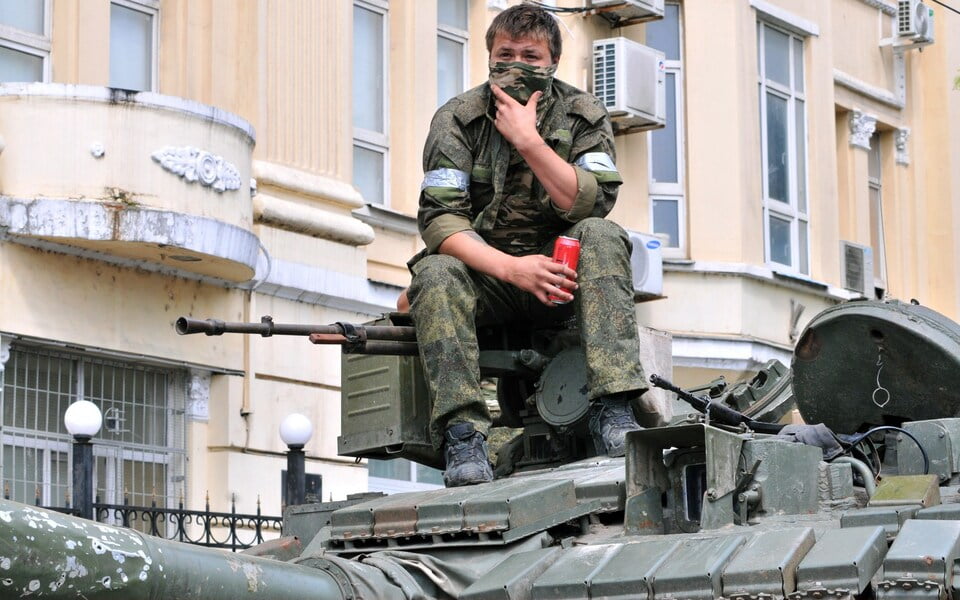In less than a day after Wagner Group mercenaries seized control of the strategic city of Rostov and started advancing towards Moscow, their leader Yevgeny Prigozhin suddenly declared on Saturday evening that their violent attempted insurrection was over.
Prigozhin stated on an official Telegram channel, “The time has come when blood may be shed. Therefore, recognizing the responsibility for Russian bloodshed on either side, we are reversing our convoys and returning to our field camps as planned.”
The apparent conclusion of Wagner’s march on Moscow was the result of a deal brokered between Prigozhin and the Kremlin, with an unexpected mediator, Belarusian President Alexander Lukashenko
According to Kremlin spokesman Dmitry Peskov, speaking to Russian reporters and reported by the state-controlled outlet TASS, the dropping of the criminal case against Prigozhin was part of the agreement. Peskov further stated that Prigozhin would go into official exile in Belarus.
Peskov also mentioned that the mercenaries who participated in Prigozhin’s operation would not face prosecution. Instead, they would be given the opportunity to sign contracts and join the Russian military, ostensibly to continue fighting in Ukraine. This information was reported by TASS.
Initially, the deal seemed to imply the end of the Wagner Group, with its fighters being integrated into the Russian armed forces.
The absence of Putin from the public eye during this critical challenge to his power was yet another notable aspect of the failed insurrection.
Peskov added that Russian President Vladimir Putin would not be making any public statements or addressing the events of the past 24 hours.
Russian President Vladimir Putin mobilized troops on Saturday in response to what he referred to as an armed rebellion led by Yevgeny Prigozhin, the leader of the Wagner mercenary group. The rebels had taken control of Rostov-on-Don, a city in southern Russia near the Ukrainian border.
Initially, Prigozhin demanded that key military figures engage in talks with him, threatening to maintain control of the city and march towards Moscow. However, on Saturday, the Wagner convoy, traveling on a northbound highway, unexpectedly stopped around 120 miles away from the capital.
Belarusian officials revealed that President Alexander Lukashenko had negotiated an agreement with Prigozhin, under the guidance of Putin, to halt the advance. The deal involved the rebels retreating to field camps in Ukraine with security guarantees. Although it’s unclear if Prigozhin’s demands were met, he stated that they turned back to prevent the shedding of Russian blood.
Prigozhin had called on citizens to join Wagner’s campaign against Russia’s military leaders, claiming that Russian forces had attacked a Wagner camp in Ukraine—an allegation denied by Russia’s Ministry of Defense. Prigozhin had been critical of the military leadership due to issues such as supply shortages during the battles in Ukraine. The capture of Rostov marked a boiling point in their disagreement.
Putin initially pledged to suppress the insurgency, referring to it as a rebellion and a betrayal. Prigozhin was labeled a traitor, and Russian authorities charged him with organizing an armed rebellion. Governments worldwide held emergency briefings to address the crisis, and countries like the UK, US, European Union, and Canada closely monitored the situation.
What factors led to rebellion?
Prigozhin denied initiating a military coup, stating that his goal was a “march for justice” while emphasizing his support among the armed forces. Once a successful businessman and a close ally of Putin, Prigozhin’s criticisms of the Russian military leadership had escalated since the invasion of Ukraine. The Wagner leader accused the military of supply shortages and other leadership failures, focusing his criticism on the military leadership rather than Putin himself.
A threat to Putin
The capture of Rostov prompted Russian authorities to declare a state of counterterrorism. Wagner’s forces, numbering around 25,000, did not back down despite appeals from military generals to abandon their mission. Prigozhin claimed they took control of Rostov without firing a single shot and announced that the fighters would not surrender. The situation led to travel advisories and warnings for residents to stay at home.
Prigozhin enjoyed significant public support in Russia, and the country had relied on his mercenaries in the war. While he maintained that his issue was not with Putin’s leadership, the president took the crisis seriously, condemning Wagner’s actions in a broadcasted speech.
The international response to the crisis included Russia continuing strikes on Ukraine, with over a dozen missiles fired at Kyiv. Ukraine viewed the dispute as a distraction for Russia and its weakness apparent. The US and UK closely monitored the situation, with President Joe Biden discussing the rebellion with French President Emmanuel Macron, German Chancellor Olaf Scholz, and British Prime Minister Rishi Sunak. The leaders affirmed their support for Ukraine in the conflict. Western countries were cautioned by Russian officials not to exploit the crisis for “Russophobic goals.”
Prior to the Wagner halt, Turkish President Recep Tayyip Erdogan offered Putin assistance in seeking a peaceful resolution, while Iranian officials recognized the rule of law in Russia and considered the events an internal matter. Latvia tightened border security, and the Czech Republic, Israel, and Estonia advised their citizens to reconsider travel to Russia.
- ✈️ Air India Flight AI 171 Crash: What Happened
- Bridging Finance Explained: Key Benefits and Risks for Short-Term Lending
- What is Iran’s problem with Israel?
- Flat White: Unveiling the Coffee Drink with a Silky Punch
- “Breaking News: Biden-Harris Administration to Forgive $1.2 Billion in Student Loans – SAVE Plan Accelerates Relief for Eligible Borrowers”

